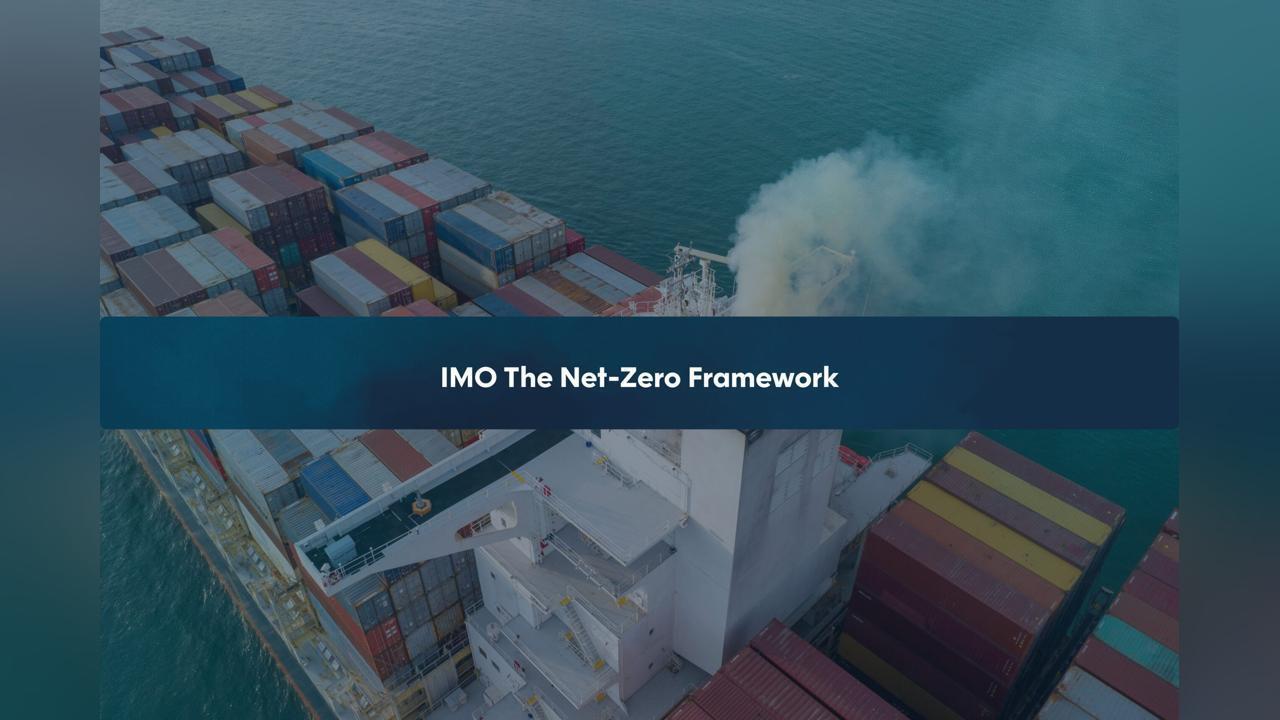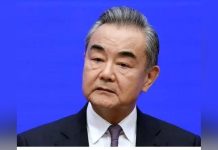Africa-Press – Lesotho. Maria Ogbugo calls for strong African Union leadership ahead of a critical IMO meeting, warning that the continent risks missing a vital opportunity to embed equity, climate justice, and fair transition principles into measures that will shape global shipping for decades to come.
As member states of the International Maritime Organization (IMO) head to London for an extraordinary session of the Marine Environmental Protection Committee, a coordinated African position on the decarbonisation of the shipping industry has never been more urgent.
The IMO’s Net Zero Framework was agreed in April 2025 after a contentious debate that culminated in a rare vote, illustrating the high political stakes of global maritime decarbonisation. After the political wranglings, it is expected to be formally endorsed at the extraordinary session.
The Framework is designed to reduce greenhouse gas emissions from the shipping industry through the introduction of a two-tier global fuel standard, and an emissions pricing and reward system for ships that use cleaner fuels.
It will also establish an IMO Net-Zero Fund that will collect and redistribute revenues. Of the 37 African IMO member states, only 13 voted; the remaining 24 did not participate in the vote because they didn’t attend the meeting or didn’t pay their dues.
Of the 13 that voted, five voted Yes, two voted No, and six abstained. This left observers to wonder whether the abstentions reflected a lack of interest or a form of quiet protest.
Several factors help explain this poor showing: many governments give a low priority to the maritime sector, there is a lack of funding for participation at the IMO, and some countries’ voting rights have been suspended for non-payment of dues.
More concerning than basic levels of participation, however, was the absence of coordination at the continental level. Without a common position, the African bloc lacked the negotiating strength that unity brings. This lack of coordination has weakened Africa’s collective voice to align the IMO process with its own ambitious development agenda.
This includes the African Continental Free Trade Area (AfCFTA) Agreement, the revised African Maritime Transport Charter, the Africa Integrated Maritime Strategy, and the African Green Industrialisation Initiative.
These initiatives aim to boost intra-African trade, develop resilient regional maritime value chains, and position Africa as a competitive force in global markets.
A report published last year by the Africa Policy Research Institute, LSE’s Firoz Lalji Institute for Africa, and the African Future Policies Hub provided some initial analysis on the impact of the NZF on African countries.
On one hand, aligning with the NZF could help Africa leverage green shipping and energy transitions to drive green industrialisation, attract climate finance, and strengthen its global trade position.
On the other hand, rising compliance and freight costs could undermine export competitiveness and exacerbate inequalities between countries with different levels of readiness.
It is therefore concerning that the African Union has not played a stronger coordinating role in shaping Africa’s position on maritime emissions reduction.
It has proved leadership in the sphere of aviation, having recently successfully championed the continent’s interests at the International Civil Aviation Organization Assembly, securing strong representation and pursuing a clear common agenda.
There could be no better time for such leadership in the maritime space. In an era of geopolitical turbulence and declining multilateralism, Africa needs a steady hand to guide its 37 IMO member states through external risks.
Two issues are of particular concern: First, the US threats of retaliatory tariffs against IMO members that back the NZF. The US administrations has called the measures “a global carbon tax on Americans by an unaccountable UN organisation” and “which would benefit China”.
Second, there is the risk that the EU’s unilateral measures aimed at reducing emissions from ships (the Emissions Trading System for shipping and the FuelEU Maritime regulation) may remain in place even after the NZF goes into force.
If these overlapped with the NZF, the compounding compliance costs for international shipping will ultimately be passed on to African consumers. Should the NZF be adopted this week, the next phase will involve developing detailed guidelines on critical aspects such as fuel lifecycle analysis and the operation of the Net Zero Fund.
Another reason for coordination at the African Union Commission level is to ensure that African member states adopt a unified approach to implementing the NZF and mitigating its potential disproportionate impacts.
African countries would be better served if they agreed on shared priorities and advanced them collectively within the relevant working groups. Without such alignment, the continent risks missing a vital opportunity to embed equity, climate justice, and fair transition principles into the measures that will shape global shipping for decades to come.
In his seminal speech on African unity made at the inauguration of the Organisation of African Union in Addis Ababa in 1963, Ghana’s first president, Kwame Nkrumah, argued that “Africa must unite or perish.
” He cautioned against the continent remaining a loose collection of states with “mere charters” where weaker states are at the mercy of powerful non-African nations.
He argued for an Africa that is united with a common purpose to move forward together in dealing with matters that affect us collectively. Africa must now connect the dots between the IMO Net Zero Framework and its common purpose.
Under the coordination and leadership of the African Union Commission, Africa can and must unite to secure its collective interests in the global maritime transition.
LSE
For More News And Analysis About Lesotho Follow Africa-Press






